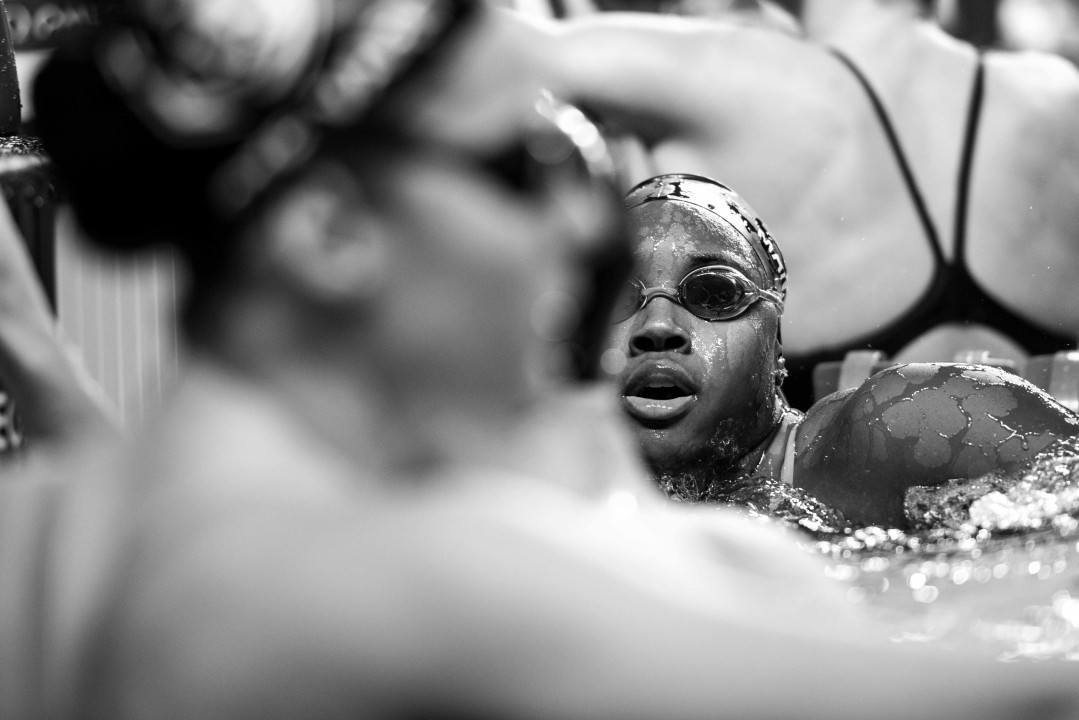Olivier Poirier-Leroy is a former national level swimmer based out of Victoria, BC. In feeding his passion for swimming, he has developed YourSwimBook, a powerful log book and goal setting guide made specifically for swimmers. Sign up for the YourSwimBook newsletter (free) and get weekly motivational tips by clicking here.
Are you happy with the way you swam this year? Do you think there is more to be squeezed from your swimming, but you aren’t sure what the first step should be? Are you ready to throw down on your swimming goals in 2017?
Here are some questions to challenge you to capitalize on the success you’ve already had in the pool this year, while also encouraging you to open up and broaden your potential and performance next year:
What habits have I been holding onto that are slowing me down in the pool?
Very rarely do we find new ways to get in our own way. Our bad habits and hang ups are shockingly consistent. Our habits aren’t generally a mystery to us (especially the bad ones), but because they are so, well, habitual, we have come to accept them as part of our identity, as part of our swimming, just the way it is.
SEE ALSO: Swimming Tips: The 7 Fundamentals of Fast Swimming
Can you think of a couple stinky habits that you have been lugging around in your swimming? Bad technique during warm up, pulling 6 times into the wall on kick sets, breathing to the same side for hours on end, and so on. Go a step beyond just thinking about them and write them down on a piece of paper to make it official.
What have I learned about myself this year that really works?
There is a mistaken assumption out there that success in the pool is based on an exact recipe. Do these sets, this many times, plus this specific dryland, and you will attain such-and-such times.
Everybody’s path and journey is different.
There are things that you inevitably learned over the course of 2016 you can apply to your swimming next year. They don’t all have to be things you learned in the pool either. A trick you picked up on helping you fall asleep faster. A morning routine that finally works for you. A pre-hab routine that has helped you stay injury-free.
What were these things? While you seek to find other little tactics and tricks that help you perform better, remember to continue to apply the stuff that is already working.
See Also: Swimming Goggles: Everything You Ever Wanted to Know
Is my lifestyle outside of the pool reflecting what I want to achieve in the water?
To show up to the pool and give a solid effort at the pool is one thing (and let’s be honest here, “solid” is a fairly broad umbrella of a term), but to live your life outside of the pool in concurrence with your goals in the water is altogether another.
Does this mean that you should be thinking about your swimming every single second of the day? Of course not. But if you are sacrificing sleep because of poor time management, or eating poorly out of convenience, or not taking care of yourself than these things will reflect in your performance at the end of the season.
Take a look back over the past year and take stock of how your lifestyle matches up with your swimming goals, and see if there are any improvements you can make moving forward.
Who has got my back in the truest sense of the word?
Your support system is far more important than we give them credit for. That emotional support is invaluable when we are down, and they are the loudest voices in the stands when we are doing well. Through thick and thin, these people—whether family, friends, teammates, coaches—are our bedrock.
Make a point to spend more time with these people this year, err, next year, while also limiting the influence that those who don’t have your long term success at heart.
What is the most effective thing you could do with an extra ten minutes of training per day?
If you had just ten minutes per day to use, what would you fill it with? What would be the most effective use of that time that would help you see greater success in the pool?
For some, it’s staying ahead of the curve on keeping their shoulders injury-free. Others could use the time to really work on their starts. Or improve their feel of the water with sculling drills.
Just ten minutes a day doesn’t sound like very much, which is excellent because it makes it approachable, easy to do (after all, what’s ten minutes?), and also it forces you to really focus. You can’t do it all, so if you can only do one extra thing, that one thing that would put a huge dent in your swimming goals, what would it be?
Over the course of an entire season that wee little ten minutes totals a whopping 3120 minutes. What could you do with 52 hours of training to swim faster next year?
About YourSwimBook
 YourSwimBook is a log book and goal setting guide designed specifically for competitive swimmers. It includes a ten month log book, comprehensive goal setting section, monthly evaluations to be filled out with your coach, and more. Learn 8 more reasons why this tool kicks butt.
YourSwimBook is a log book and goal setting guide designed specifically for competitive swimmers. It includes a ten month log book, comprehensive goal setting section, monthly evaluations to be filled out with your coach, and more. Learn 8 more reasons why this tool kicks butt.
NEW: We now have motivational swimming posters. Five of ’em, actually.
Join the YourSwimBook weekly newsletter group and get motivational tips and more straight to your inbox. Sign up for free here.

This are very great tips. I’ll definitely keep this in mind. Thanks.